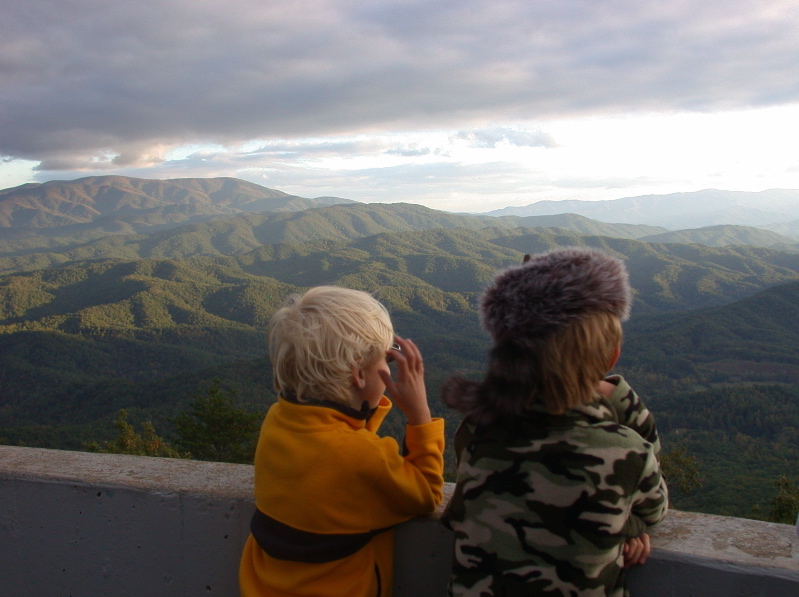Has life thrown you a curve ball? Do you love hugging the curves while you are driving? Do you love or hate your physical curves? Winkipedia defines "Curve" as: "In mathematics, the concept of a curve tries to capture the intuitive idea of a geometrical one-dimensional and continuous object." But we use the word in a lot of different ways. What do you have to say about curve/ curves?
I had only one image come to mind with this prompt: mountain roads. That brought me to thinking about the differences between Iowa, where we lived for 5 years during graduate school, and Tennessee, where we lived before and since Iowa. The poem following the blurb I wrote during graduate school in Iowa, back when we would make the trip from Iowa to Tennessee once a year, and we only dreamed that we might return to Tennessee someday for good. The picture is of my youngest son, who was born here in Tennessee, and his friend looking out at the great expanse of Great Smoky Mountains, one autumn evening.
********

There are things you miss about the South but mostly you miss the mountains. You never learn to love the prairie. You never love the big empty Iowa sky and the straight roads, cutting even squares and rectangles through the farms. You never love the tall corn and straight rows of soybeans. It is all too orderly. You miss the sharp curves of the mountain roads, the thrill of fear, the proximity of the edge. You miss the tangle of laurel thickets and confusion of kudzu. You miss the way the mountains stretch and curl back into themselves, gently curving like the stillest sea.
And when you are home again, finally, you will never miss that midwestern wind, endless in its straightforward, relentless pursuit.
Seventeen Hours, Give or Take (Driving South)
We count on someday,
coffee on the front porch,
Buffalo Mountain still
in its own black shadow.
We live now
for the next vacation
and the next, driving southeast
and then south and east,
shedding
these strange selves
as the farms turn to forests,
corn to tobacco.
Two hours to go
and we are easy again
as if some lethal spell
has been lifted. We unzip
our stiff suits
at the state line
and toss them out the window.
Our skin beneath is warm
and smells greenly of wood.
We can't stop breathing.
(By Sarah Small. Published in Breathing the Same Air, copyright 2001)


